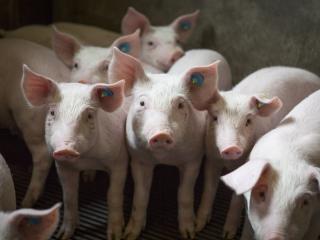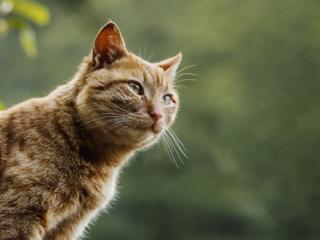Lawyers contribute to nature conservation
Tilburg University is a university specializing in the Humanities and Social Sciences. Based on that expertise, it can contribute to the UN’s Sustainable Development Goal 15: ‘Life on land’. Legal scholars of Tilburg Law School (TLS) publish regularly on topics that link up with this social theme, whether it is about the return of the wolf, the reintroduction of the Atlantic sturgeon as an iconic fish species in the Rhine system, the protection of the African lion, or stopping the loss of wilderness values in Antarctica.
Wolf
Tilburg University is a university specializing in the Humanities and Social Sciences. Based on that expertise, it can contribute to the UN’s Sustainable Development Goal 15: ‘Life on land’. Legal scholars of Tilburg Law School (TLS) publish regularly on topics that link up with this social theme, whether it is about the return of the wolf, the reintroduction of the Atlantic sturgeon as an iconic fish species in the Rhine system, the protection of the African lion, or stopping the loss of wilderness values in Antarctica.
The return of large carnivores shows the success of nature conservation law, mainly because the killing of these animals is severely restricted. People have to get used to the proximity of predators and the law indicates what can and what cannot be done. - Arie Trouwborst
Sturgeon
Whereas the wolf and the golden jackal found their way to our country of their own accord, other animals will not manage without help. This goes, for instance, for the Atlantic sturgeon, a prehistoric fish that can reach 3.5 meters and used to flourish in all great European rivers and estuaries. Today, however, the species only breeds in the Garonne river basin in France. Kees Bastmeijer: “The species is on the IUCN’s Red List of critically endangered species. Various treaties as well as EU law oblige the Dutch government to investigate whether reintroduction of the sturgeon in the Rhine is possible. However, the Netherlands has adopted a very passive attitude and has left the work mainly to civil society organizations. A legal analysis may help these organizations to tackle that reluctant government over this issue.”
International
The above examples show that there are great opportunities for the restoration of natural values in the Netherlands. But that is not where the lawyers stop. Arie Trouwborst, for instance, actively uses his knowledge to contribute to the protection of the large carnivores and herbivores (also called megafauna) in Europe as well as in Africa, from the brown bear and the lynx to the rhinoceros and the lion: “As a member of the Large Carnivore Initiative for Europe, an international advisory group, I get to deal with a lot of topics that are important practically and that have problematic legal aspects. For example, I was involved in developing a management plan for bears in Bosnia, ‘uplisting’ the threatened Balkan lynx to a stricter protection regime, and drafting European guidelines on how to deal with wolf-dog hybridization.”
An import ban on hunting trophies may seem like a good idea for the future of leopards, but it can be counterproductive. - Arie Trouwborst
Trouwborst’s most recent African study was on the international trade in leopard hunting trophies, a sensitive and also complex theme. “An import ban on hunting trophies may seem like a good idea for the future of leopards, but it can be counterproductive. Loss of income from hunting can lead to habitat loss and conversion to agriculture. In many African countries it is argued that ‘If it pays, it stays.” To ensure that the legal research is soundly embedded in the factual and policy contexts, he collaborates closely with biologists and other experts.
Antarctica
The same goes for Kees Bastmeijer. He is more drawn to the colder areas on earth and, since 1992, has been closely involved in the international management of Antarctica as an advisor of the Dutch government: “The wilderness values of this areas are rapidly compromised by the strong increase of scientific and tourist activities. Together with international colleagues, we are mapping this loss of wilderness and we are trying to explain the role of the law in preventing further damage to this relatively untouched area.”
Sound international research with social impact
Bastmeijer and Trouwborst emphasize that they are not the only ones within TLS who are active on these subjects. Research questions that attract media attention are about the present, but first and foremost about the future. What effect will climate change have on ecosystems and how should the law respond? Are legal changes required to more effectively protect nature? Should rivers or old forests be given legal personality and ownership rights?

We have a strong research group with a common drive: conducting sound international research, sharing the knowledge obtained with policy makers and other stakeholders, and, ultimately, contributing to SDG 15.
Prof. Kees Bastmeijer and dr. Arie Trouwborst are affiliated to the Department of Public Law and Governance of Tilburg Law School.
Date of publication: 7 April 2020




